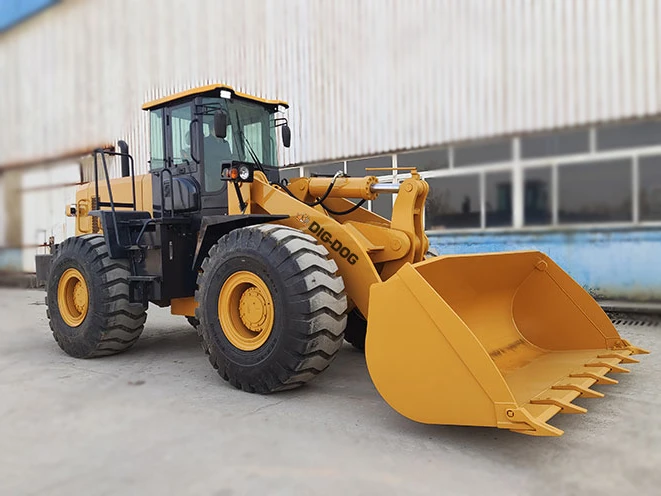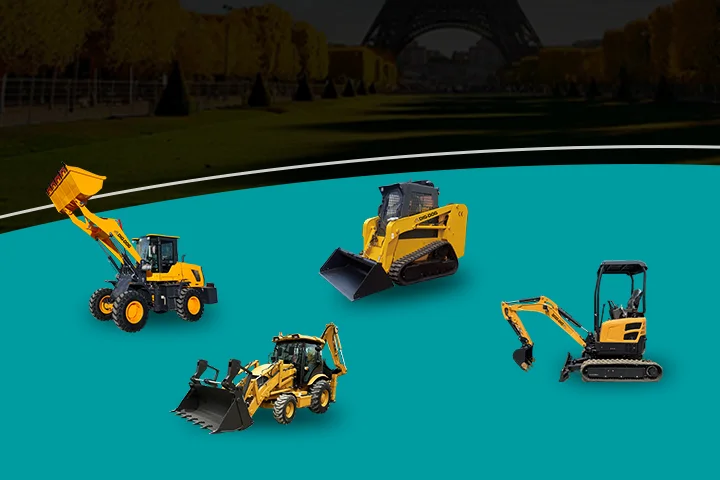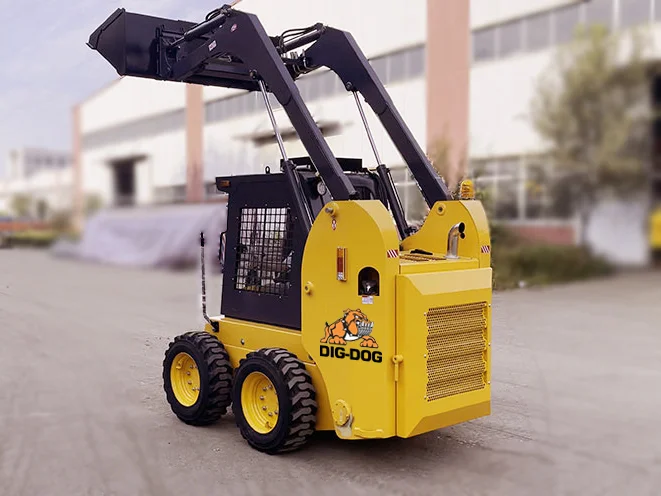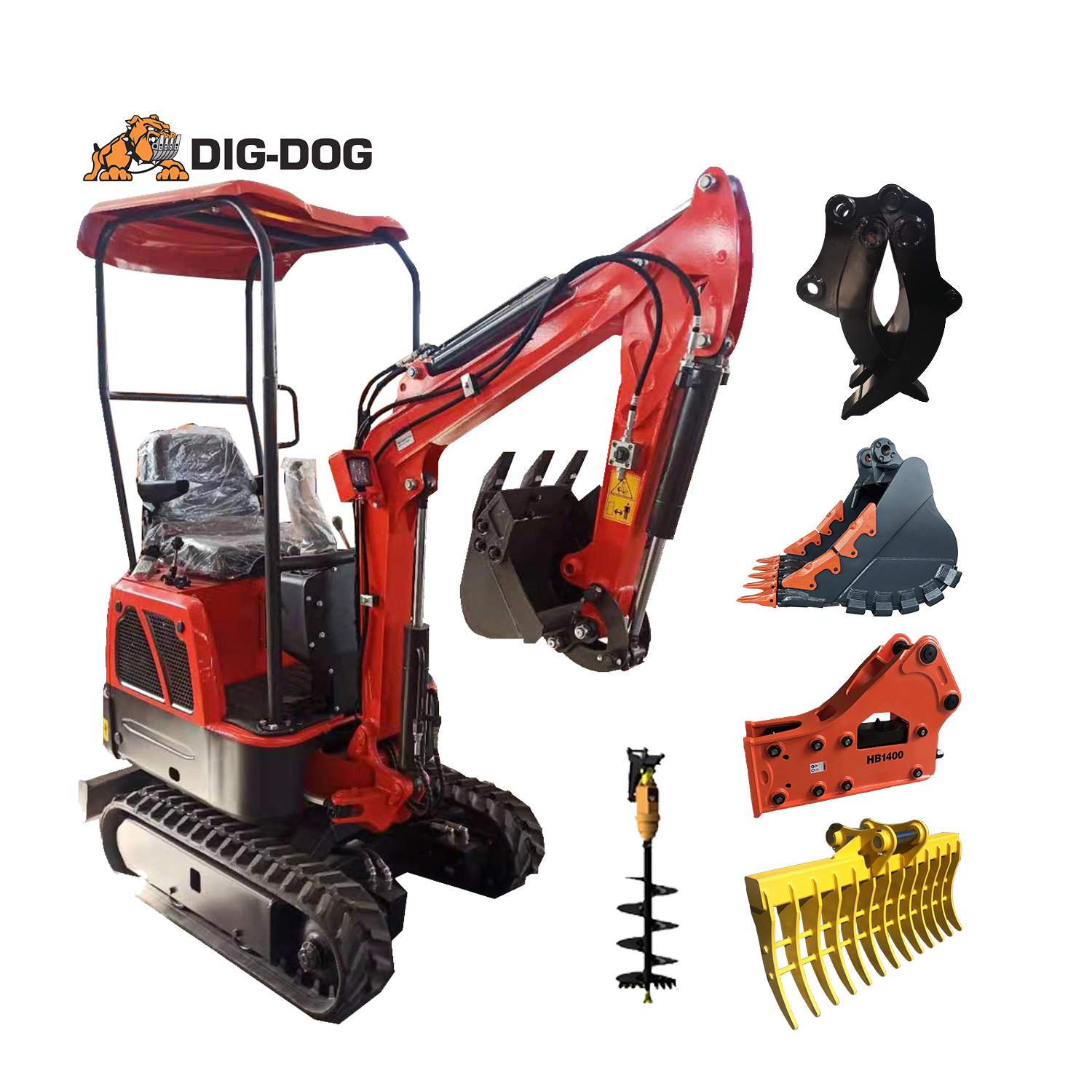
To make the loader even more nimble, Louis Keller discarded the original model’s steerable rear wheel and let the machine roll on four fixed wheels. But how could fixed wheels be steered? Keller’s solution was to distribute the weight of his loader so that one end would always outweigh the other. In practice, this means when a set of wheels on the heavier end counter-rotates to pivot the loader, the two wheels on the lighter end are carried—or skidded—in the direction of the turn.
Thus was born the “skid steer” loader, which Melroe soon marketed under the brand name of “Bobcat.” The rest is history.
Part of that history, incidentally, involves the creation of a kindred machine, the compact track loader. The Kellers foresaw a market for compact loaders rolling on rubber tracks, so they manufactured tracks for Bobcat skid steers. The tracks gave more flotation and traction on soft ground and birthed the parallel compact track loader industry, which today is a separate category of machine.
If You Are Buying a Skid Steer
Find Skid Steer Loader Models and Specifications
Find specifications and charts for a host of Skid Steer Loaders in our Skid Steer Loader Specs and Charts section
Selecting a skid steer is not a science, nor an art. It is a decision-making process rooted in logic. The logic of it can be boiled down to the following four considerations:
Match a skid steer to your need for the machine
One size skid steer does not fit all situations. Nor does one size engine in a skid loader fit all tasks, nor one travel speed, one hydraulic capacity, or one lift height. These and other engineering distinctions in skid steers can make one loader more suitable then another.
So, you need to look critically at your tasks. Will most of your work with a skid steer loader be at ground level, loading fill dirt, pushing snow, operating an auger? Or will you frequently need to work at a higher level, unloading material into a truck, for example? Will you be traveling far enough that speed becomes a consideration? Will you be using attachments that require high-flow hydraulics?
You should know how you will use a skid steer loader before you go shopping for one.
Evaluate a skid steer loader by what it can do and cannot do
Equipment manufacturers engineer machinery to efficiently perform identified tasks. Heavy machines on steel tracks and a blade on the front are ideal for leveling a hill or pushing material into piles. They’re called bulldozers. Highly maneuverable wheeled machines with a long hydraulic boom are perfect for transferring materials from the ground to second-story levels. They’re called telehandlers.
A skid steer can do none of that. It is designed to nimbly scoop up and dump relatively small bucketsful of earth, to blade or blow snow from a sidewalk, broom-clean a parking lot, transfer a hay bale from pasture to feedlot. A skid loader can perform these tasks with great efficiency and is a highly productive piece of compact machinery.
Be realistic about what you want a skid steer loader to do and you won’t be disappointed.
Give some weight to brand and dealership considerations
Only a fool buys a piece of compact equipment because it is green, or orange and white, or blue. While brand loyalty is understandable, blind loyalty to a manufacturer is short-sighted. Shoppers for a skid loader should enter the market with their eyes wide open. Truly excellent skid steers are produced by numerous manufacturers, and a smart buyer will evaluate them without bias.
On the other hand, manufacturers and dealers also should be a part of your calculation. Company reputations matter in respect to customer support, product reliability, and swift delivery of parts. When a bearing wears out or a hydraulic pump fails, will it be an inconvenience for you or a major headache? A topnotch machine won’t bring you satisfaction if it is backed by a lackluster service department.
A caveat for fleet managers: While the foregoing counsel on brands is universal, there is practical value in a fleet of skid steers wearing a common manufacturer’s logo. Having three Case skid loaders, four Cats, two JCBs, and a Takeuchi in the equipment yard invites headaches. Because different manufacturers’ parts aren’t interchangeable, the warehouse is fuller than necessary. Because service requirements vary, technicians must skip from manual to manual. And management software to monitor machine performance varies from brand to brand, so it is incompatible. This all can be avoided by selecting a manufacturer with a complete line-up of skid loaders and staying with it.
Don’t overlook machinery auctions
The first impulse when you decide to shop for a skid steer loader probably is to visit a dealership for a new or used machine. While that’s a good choice — and can lock in dealer support — it is not the only choice. Machinery auctions are a trustworthy source for second-hand equipment. Nationwide auction houses have been around for decades and have established inspection and warranty policies to protect your investment. Sales are transparent and customer satisfaction drives the process.
The auctions themselves are designed to be convenient. Heavy and compact machinery is arranged for hands-on inspection and sometimes is driven across a staging area for seated bidders. Even more conveniently, the larger auctions are simultaneously conducted online. This has the added value of bringing to bidders a skid steer for sale that is not on site, that, in fact, might be parked in an equipment yard in another state or country. The same buyer-protection policies apply to these long-distance transactions.
An auction by a reputable company is a reliable resource for a skid loader shopper.
 Choosing the Right Loader Truck for Your Business Needs
Choosing the Right Loader Truck for Your Business Needs
 Unveiling the Top 10 Must-Have Construction Vehicles for Your Business
Unveiling the Top 10 Must-Have Construction Vehicles for Your Business
 How High Lift Skid Steers Save You Time and Money
How High Lift Skid Steers Save You Time and Money
 Attachments Turn Mini-excavators Into Multipurpose Machines
Attachments Turn Mini-excavators Into Multipurpose Machines